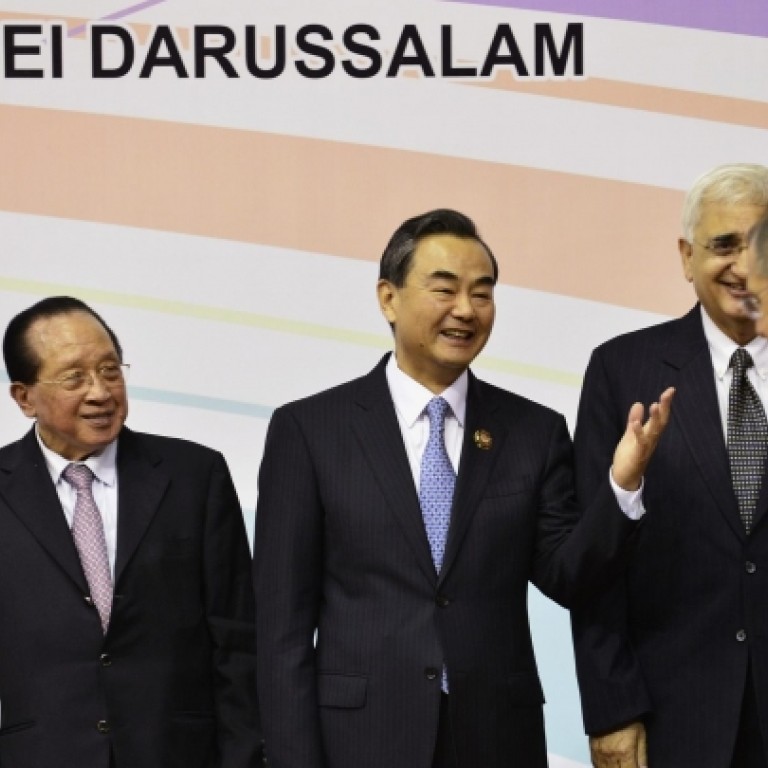
China on charm offensive at Asean security forum
Beijing signals a more conciliatory approach with Asean in contrast to an aggressive push on sovereignty in the South China Sea in recent years
China turned on the charm at a regional security meeting this week, signalling a change in tone as President Xi Jinping seeks to counter a US push for more influence in Asia.
Beijing agreed during an Association of Southeast Asian Nations-hosted forum in Brunei to meet the 10-member group in September to develop rules to avoid conflict in waters marked by confrontations with nations such as Vietnam and the Philippines. China also expressed unity with the United States, South Korea and Japan to rid North Korea of nuclear weapons.
Those policy stances may reflect a more conciliatory approach after China's aggressive assertion of sovereignty in the South China Sea in recent years prompted neighbours to boost security links with the US. China is vying for influence in Asia, while the US conducts a pivot toward the region and supports allies like the Philippines.
"China has moved from the, 'Do little, engage little' form of engagement to, 'Do a lot, engage a lot," said Gary Li, a senior analyst at IHS Maritime in London. "The new dynamism signals a potential new era in Chinese relations with its neighbours, including Asean."
Foreign Minister Wang Yi , attending his first Asean meeting since Xi took the presidency in March, said China and Asean were "like members of one big family". He pledged to upgrade an Asean-China trade agreement and push ahead with talks on a regional economic partnership.
A year ago, China warned nations to avoid mentioning the territorial spats during Asean meetings and said it would begin talks on a code of conduct for the South China Sea only "when conditions are ripe".
China may be taking a friendlier tone to isolate the Philippines over a dispute that has seen several stand-offs between Chinese and Philippine vessels. The Philippines has boosted defence ties with Japan and the Obama administration, which since 2011 sought to pivot toward Asia.
China is "turning on a charm offensive to Asean as a whole, and at the same time making it clear that it is the Philippines that is making trouble", said Steve Tsang, director of the China Policy Institute at the University of Nottingham in Britain.
Thai Foreign Minister Surapong Towijakchaikul, at a joint briefing with Wang on Sunday, called Asean's relationship with China strong and said it was "the pillar that underpins peace, security and prosperity in the region".
Wang met representatives from India, Pakistan and Mongolia on the sidelines of the summit as well, pledging to advance co-operation, Xinhua reported.
At the weekend, the Philippines said the presence of Chinese ships around two land features it claims in the South China Sea threatened maritime peace. Foreign Minister Albert del Rosario said Wang was looking to make a good impression at his first Asean meeting since China's leadership handover. "It's a new government - they've got to do that," he said.
US Secretary of State John Kerry left behind marathon meetings with Israeli and Palestinian leaders to attend the Asean forum and reinforce America's commitment to Asia.
"China knows that it is in an unfavourable position as the US, South Korea and Japan strengthen their alliance based on the North Korea nuclear issue," said Kim Han-kwon, director of the Centre for China Policy at the Asian Institute for Policy Studies in Seoul. China made "a strategic decision to counterbalance America's superior political and military influence over the region", Kim said.
